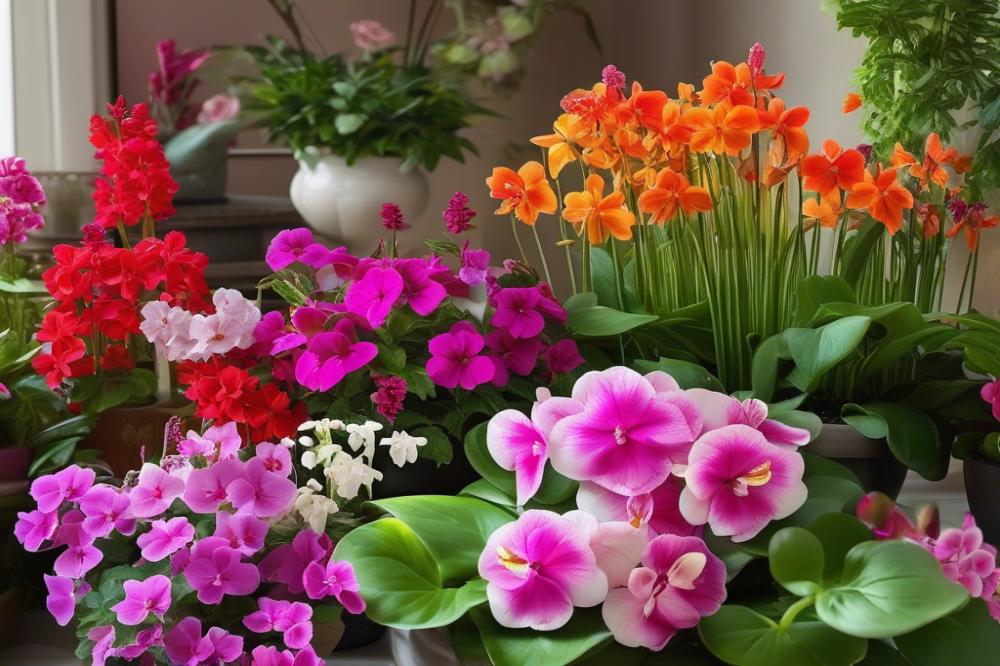The benefits of growing roses in an Organic pollinator garden
Gardening in a sustainable way has never been more important. An organic rose garden serves as a beautiful oasis that contributes to local ecosystems. Roses often act as key players in enhancing biodiversity, attracting various forms of life that enrich our surroundings. Healthy ecosystems depend on these relationships. With the right garden design, a space filled with roses can invite bees, butterflies, and other beneficial insects.
Roses are not just lovely blooms; they play an essential role in promoting pollinators. Many flowering plants provide the nectar and pollen that these creatures need to thrive. In turn, pollinators are crucial for the reproduction of many plants. By planting roses alongside other flowering varieties, gardeners can create a vibrant environment that supports both aesthetics and ecology. This type of companion planting encourages a thriving habitat where pollinators can flourish.
Choosing organic gardening practices enhances soil health and prevents harm to wildlife. Chemicals often used in traditional gardening can negatively impact ecosystems. Adopting sustainable gardening methods reduces this risk, allowing for a balanced environment. When gardeners prioritize organic approaches, they contribute to a healthier planet. This commitment not only helps their gardens thrive but also supports the community of insects and wildlife that rely on these habitats.
By integrating roses into a pollinator garden, individuals can enjoy beauty while making a positive impact. The fragrant petals and vibrant colors attract eyes and hearts, but the hidden benefits extend far beyond mere appearances. With each rose planted, gardeners nurture essential biodiversity and promote harmonious relationships within nature.
The Benefits of growing roses in an Organic Pollinator Garden

Choosing to cultivate roses without chemical pesticides has many advantages. Healthy roses thrive in an environment free from synthetic chemicals. Organic gardening methods promote the natural balance of the ecosystem. This approach allows beneficial insects to flourish. As a result, these insects help control pests naturally.
Another significant benefit is the enhancement of biodiversity. When you grow roses alongside other flowering plants, you attract a variety of pollinators like bees and butterflies. These creatures play a crucial role in the pollination process. More pollinators lead to healthier plants and a richer garden experience. Different plant varieties also create a vibrant and appealing garden design.
Utilizing companion planting techniques can further boost this effect. Pairing roses with the right neighboring plants can repel harmful pests and encourage growth. This method is an excellent example of sustainable gardening. Through this interconnected planting, the garden becomes a thriving habitat for various species.
Focusing on soil health is vital in organic gardening. Healthy soil provides essential nutrients for flowering plants. Organic materials, like compost, improve soil structure and enhance moisture retention. This allows roses to grow stronger and more resilient. Richer soil means healthier plants, which naturally attract more wildlife.
Attracting Essential Pollinators: Bees and Butterflies

Pollinators like bees and butterflies play a crucial role in maintaining our ecosystems. Without these insects, many plants would struggle to reproduce. Gardens designed to attract these beneficial creatures can have a significant positive impact. With flourishing biodiversity, your garden can contribute to a healthier environment.
Roses and other flowering plants lure in these vital pollinators. Bright colors and sweet scents make them irresistible to bees and butterflies. Planting a variety of blossoms not only adds beauty but also provides food for these insects throughout the growing season. This diversity is essential for a thriving garden.
Creating habitats that support insect populations involves thoughtful garden design. Incorporating companion planting helps increase the variety of flowers and plants available. Certain combinations can naturally repel pests while attracting pollinators. This approach enhances both plant health and biodiversity.
Focusing on organic gardening practices further encourages a thriving insect community. Avoiding synthetic chemicals ensures a safe environment for pollinators. Soil health is also improved when organic methods are employed. Healthy soil leads to strong plants, which in turn produce more flowers for bees and butterflies.
In an organic rose garden, you can provide the sustenance these essential insects need. By offering shelter and food sources, you invite them into your garden space. A little effort goes a long way in supporting these beautiful creatures. Each positive change helps promote sustainable gardening practices that benefit the environment.
Incorporating Companion Planting

Companion planting refers to the practice of growing different plants in proximity for mutual benefits. This method is especially relevant to a rose garden, as it promotes health and vitality in an organic setting. Understanding the right combinations can help roses thrive while attracting beneficial insects.
Best Companion Plants for Roses and Their Benefits
Consider adding garlic, chives, or marigolds alongside your roses. These plants can naturally repel pests that often trouble roses, such as aphids and beetles. Additionally, flowering plants like lavender draw in pollinators, which are crucial for a balanced ecosystem. Planting yarrow nearby can enhance soil health while adding beauty to your garden design.
Sunflowers are another excellent choice. They attract bees and butterflies, enriching the biodiversity of your garden. Not only do these larger blooms provide nectar, but they also support birds and other wildlife. By incorporating these various plants, you cultivate a lively habitat.
How Companion Planting Promotes a Balanced Ecosystem
Fostering a healthy garden requires thoughtfulness. Companion planting encourages a diverse group of plants to coexist, which can lead to a more resilient ecosystem. Healthy soil, vital for organic gardening, benefits from the nutrients released by different species working together.
Moreover, this strategy can reduce pest populations naturally, minimizing the need for chemical interventions. This creates a safer environment for pollinators like bees and butterflies. Their presence is essential not just for roses, but for overall ecological balance.
Designing a Sustainable Organic Rose Garden

Key elements of garden design for an organic rose garden
Building a sustainable garden requires careful planning. Select roses that thrive in your climate. Native varieties often draw local pollinators like bees and butterflies. Grouping plants according to their needs can boost overall health. This method of garden design encourages biodiversity. Use organic practices to keep pests away without harsh chemicals. When roses are well-cared for, they bloom beautifully and attract friendly visitors.
Creating a pollinator-friendly landscape with diverse plants
A vibrant garden attracts various pollinators. Incorporate a variety of flowering plants in different shapes and colors. This diversity provides nectar and pollen throughout the growing season. Plants like lavender or coneflowers can harmonize perfectly with roses. They create a good habitat for beneficial insects. Including companion planting helps as well. This method boosts soil health and warding off pests. As a result, your garden becomes a delightful haven for bees, butterflies, and other pollinators.
Strategies for integrating sustainability in garden maintenance
Maintenance practices are vital in sustainable gardening. Mulching is one great way to preserve soil moisture and control weeds. Organic materials like straw or wood chips work well. Regularly composting kitchen scraps enriches garden soil naturally. It’s an efficient way to recycle waste while nurturing plant life. Watering early in the morning minimizes evaporation. Keep an eye on plant health to prevent problems before they start. These strategies reinforce the balance in your organic rose garden while supporting the surrounding wildlife.
Maintaining a Healthy Organic Rose Garden
Best Practices for Organic Rose Cultivation
Growing roses without synthetic chemicals is rewarding. Start with choosing disease-resistant varieties. They thrive better and require less intervention. Regularly check your plants for early signs of diseases or pests. Always water at the base rather than overhead, which helps prevent fungal growth. Mulching is another useful technique. It conserves moisture, suppresses weeds, and adds nutrients as it decomposes. Using organic fertilizers can also boost growth. These natural options promote strong, vibrant plants while keeping the surrounding ecosystem healthy.
The Role of Composting and Soil Management in Sustaining Health
Soil health plays a crucial role in your garden’s success. Good soil improves root development and nutrient absorption. Regular composting enhances soil by adding essential nutrients. This process fosters beneficial microbes that break down organic matter. Consider adding compost to your beds each season. When designing your garden, keep in mind that well-aerated soil allows water to flow properly. Better water management makes for healthier flowering plants. Additionally, mixing in organic matter promotes a thriving habitat for earthworms and other beneficial organisms. This, in turn, boosts biodiversity.
Understanding Pest Management in a Pollinator-Friendly Context
Managing pests without harsh chemicals is important. First, learn to identify common pests that target roses. Knowing your enemies makes it easier to act. Sometimes, insects like aphids can be managed by introducing beneficial insects such as ladybugs. These friendly helpers feast on pest populations. Companion planting is another effective strategy. Marigolds, for instance, can repel harmful insects while attracting beneficial ones. Promoting a garden that welcomes bees and butterflies doesn’t just create beauty—it enhances pollination too. When your roses bloom, the diversity of life in your garden will thrive, creating a sustainable environment that benefits everyone.
Final Thoughts
Creating an organic rose garden offers many advantages. Not only do these flowers beautify your space, but they also play a key role in attracting a variety of pollinators. The presence of these beneficial insects increases biodiversity, promoting a healthier ecosystem. Additionally, using organic practices leads to stronger, more resilient plants. By avoiding harmful chemicals, your garden will be a safer place for wildlife, pets, and people alike.
It’s essential to recognize the connection between gardening and nature. Embracing organic methods helps maintain the delicate balance of our environment. Organic gardening also fosters a sense of community. Sharing tips and plants with neighbors creates bonds and inspires others to adopt eco-friendly practices.
Consider the impact you can have by planting an organic pollinator garden. Every little contribution counts in nurturing our planet. Think about the joy of seeing butterflies, bees, and birds visiting your flowers. It provides a lovely view while serving an important purpose. You can add beauty to your backyard and promote a vibrant ecosystem.
So, why wait? Now is the perfect time to start your journey toward sustainable gardening. Gather your gardening tools, pick your favorite rose varieties, and plan your pollinator paradise. Your effort can lead to a thriving habitat that benefits both the environment and your home. Let’s work together to create beautiful spaces that honor biodiversity while enhancing our lives.



